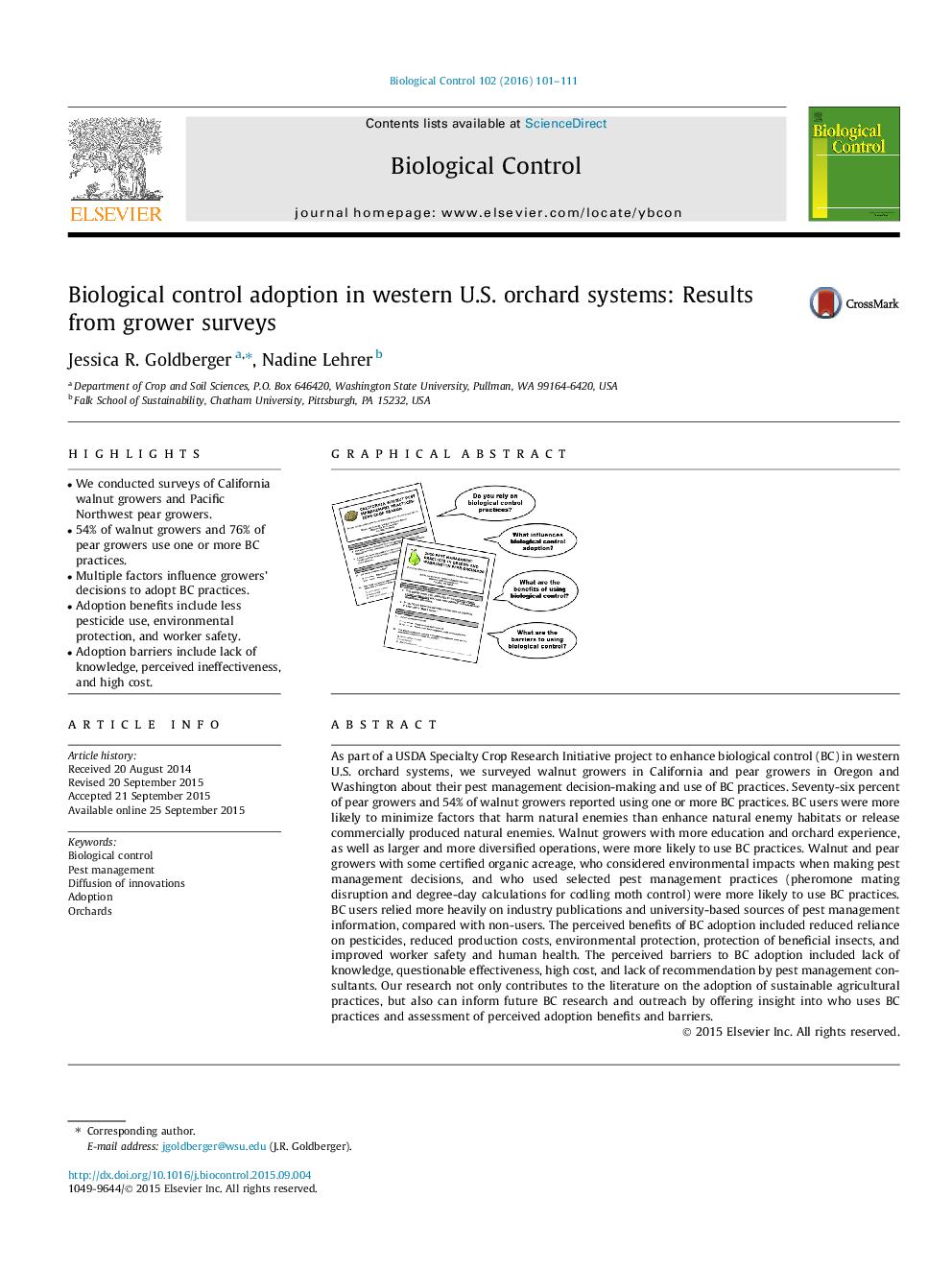| کد مقاله | کد نشریه | سال انتشار | مقاله انگلیسی | نسخه تمام متن |
|---|---|---|---|---|
| 4503572 | 1624232 | 2016 | 11 صفحه PDF | دانلود رایگان |
• We conducted surveys of California walnut growers and Pacific Northwest pear growers.
• 54% of walnut growers and 76% of pear growers use one or more BC practices.
• Multiple factors influence growers’ decisions to adopt BC practices.
• Adoption benefits include less pesticide use, environmental protection, and worker safety.
• Adoption barriers include lack of knowledge, perceived ineffectiveness, and high cost.
As part of a USDA Specialty Crop Research Initiative project to enhance biological control (BC) in western U.S. orchard systems, we surveyed walnut growers in California and pear growers in Oregon and Washington about their pest management decision-making and use of BC practices. Seventy-six percent of pear growers and 54% of walnut growers reported using one or more BC practices. BC users were more likely to minimize factors that harm natural enemies than enhance natural enemy habitats or release commercially produced natural enemies. Walnut growers with more education and orchard experience, as well as larger and more diversified operations, were more likely to use BC practices. Walnut and pear growers with some certified organic acreage, who considered environmental impacts when making pest management decisions, and who used selected pest management practices (pheromone mating disruption and degree-day calculations for codling moth control) were more likely to use BC practices. BC users relied more heavily on industry publications and university-based sources of pest management information, compared with non-users. The perceived benefits of BC adoption included reduced reliance on pesticides, reduced production costs, environmental protection, protection of beneficial insects, and improved worker safety and human health. The perceived barriers to BC adoption included lack of knowledge, questionable effectiveness, high cost, and lack of recommendation by pest management consultants. Our research not only contributes to the literature on the adoption of sustainable agricultural practices, but also can inform future BC research and outreach by offering insight into who uses BC practices and assessment of perceived adoption benefits and barriers.
Figure optionsDownload as PowerPoint slide
Journal: Biological Control - Volume 102, November 2016, Pages 101–111
